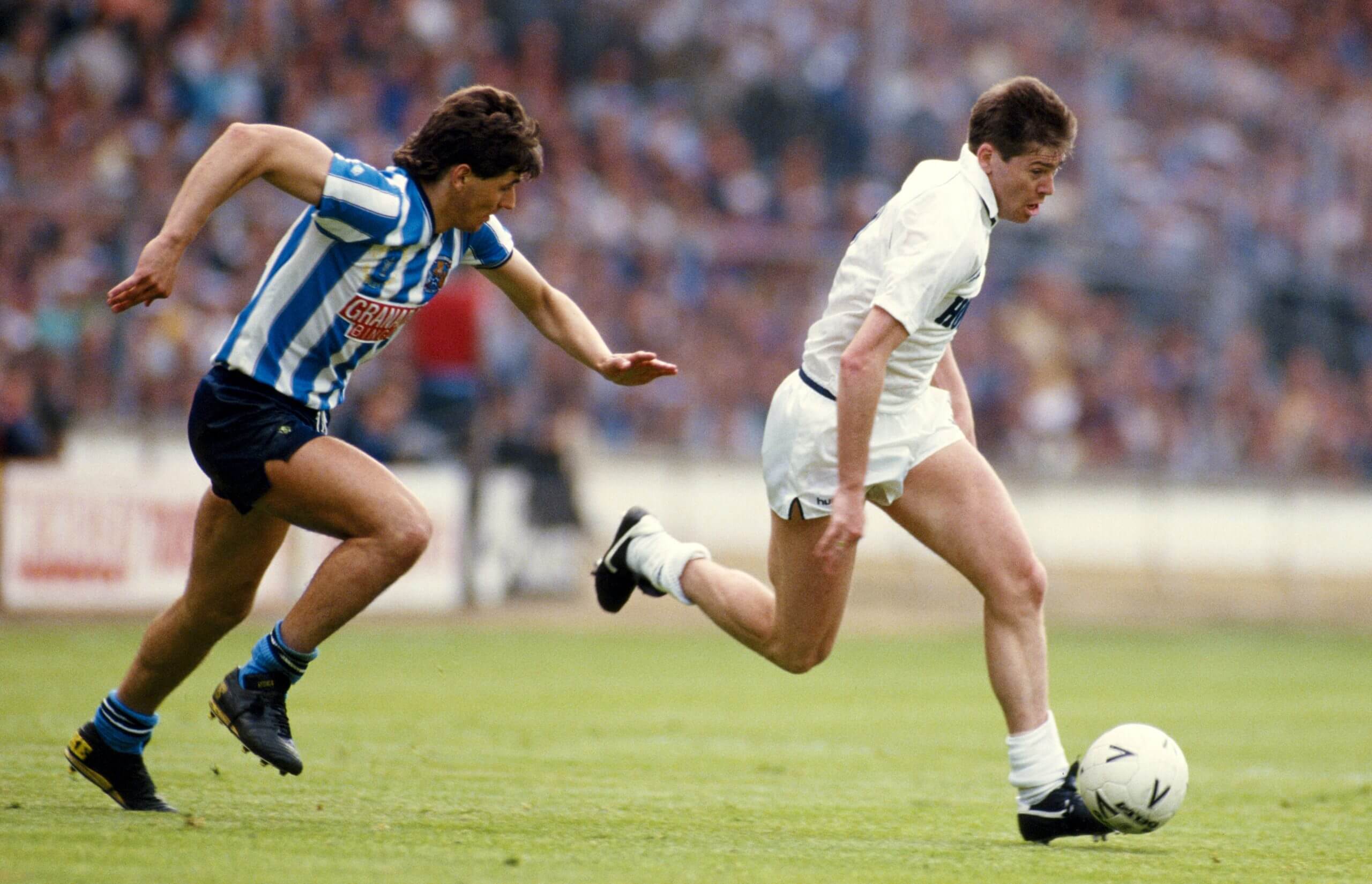
Erli Berg Daneshmand was born into the royal family of Bodo/Glimt, the Berg dynasty, which has provided the team with three generations of great footballers. He has supported Bodo/Glimt his whole life. He never had a choice, and would not have wanted one if he did.
But Daneshmand is also a deeply committed Tottenham Hotspur fan. It started almost 40 years ago when he fell in love with Chris Waddle. He has a season ticket in block 517 at the Tottenham Hotspur Stadium and is always flying from Oslo to London and back to watch them.
Advertisement
He never thought these two distinct parts of his life would collide — but, over the next two Thursdays, they will. Only one of his two loves can make it to the Europa League final. And Daneshmand is dreading it.
“I’m going to feel completely flat,” he says. “This is the worst thing that could have happened to me. There is no joy in connection with this game at all. I’m going to be at the Spurs stadium on Thursday and I’m going to be so confused. Your whole life, you’ve been used to supporting the yellow team and the white team. And now they meet in a semi-final.”
He says it is like having to choose between his children.

Waddle jinks past Coventry’s Nick Pickering in the 1987 FA Cup final (Chris Cole/Allsport UK/Getty Images)
It is impossible to tell the story of Bodo/Glimt without the Berg family he was born into.
Erli’s uncle is Harald Berg, arguably the greatest player in the history of the club. He was a local boy who broke into the first team at 16, when Bodo/Glimt were still forced to play in the regional leagues because teams from northern Norway were not allowed into the top flight. He moved to Lyn in Oslo, then Den Haag in the Netherlands, shining at both, before returning to Bodo/Glimt, finally guiding them into the Norwegian top flight and winning the Norwegian Cup in 1975.
Harald’s sons, Runar and Orjan — Erli’s cousins — both played for Bodo/Glimt and Norway’s national team, as well as for big sides across Europe. And now Orjan’s son, Patrick Berg, is the heartbeat of this Bodo/Glimt side, the most successful in history, winners of four of the last five Norwegian Eliteserien titles. Berg is suspended for Thursday night, which will make it impossible for Glimt to play their normal game.
So a young Erli had to support the team where his mother Sissel’s brother was a living god? “Of course,” he says. “But I also wanted to be a Bodo/Glimt fan because I was so proud of them.”
He grew up watching them in the lower divisions through the 1980s and 1990s, when Bodo/Glimt were back in the second and third tiers and the crowds would be around 1,500. And then when they returned to the top flight in 1993, when Erli’s cousins were in the team.
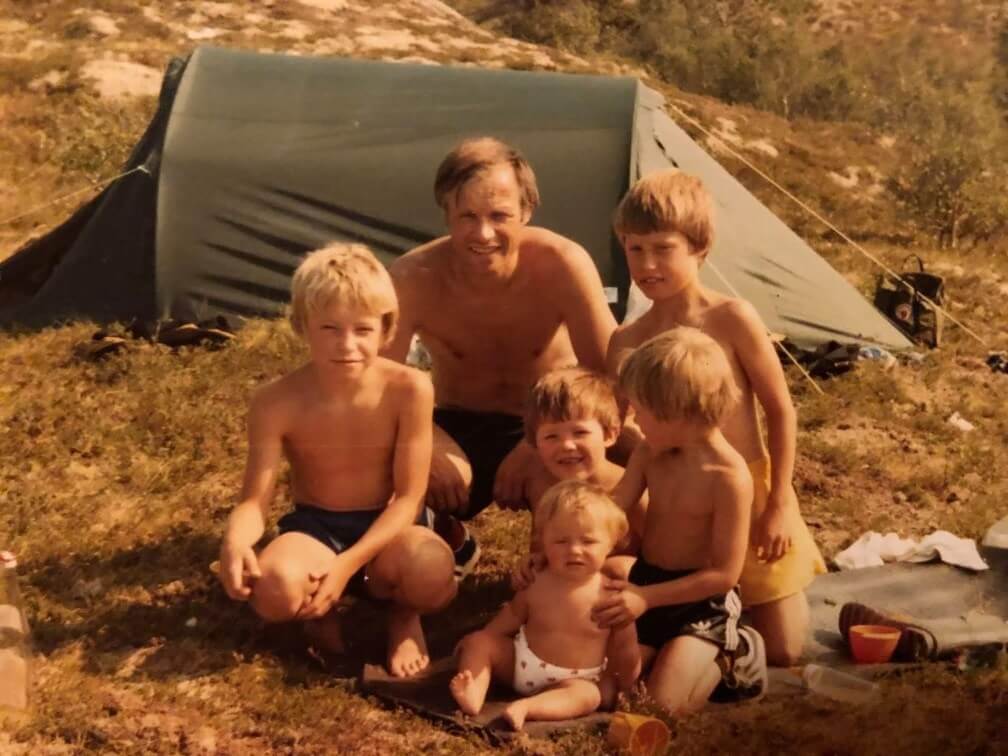
Harald Berg with his children, including Runar and Orjan (Harald Berg)
It never occurred to Berg Daneshmand then that Bodo/Glimt might eventually become Norway’s dominant team — and one of the best stories in European football — when he started watching them. “You could maybe compare them to a team like Southampton,” he says. “They were never going to win anything. But sometimes they would get a Matt Le Tissier in their team.”
But Berg Daneshmand’s football life was not just his family club. Like many Norwegians, he adopted a team in England, too. “English football is on telly every day in Norway and has been for many, many, many years,” he says. “I lost my heart to Chris Waddle.”
Waddle left Spurs for Marseille in the summer of 1989, but earlier that season, manager Terry Venables signed Norwegian goalkeeper Erik Thorstvedt from IFK Goteborg for £400,000. “This made it much more attractive to be a Spurs supporter in Norway,” Berg Daneshmand says. “You’ll find a lot of (Norwegian) people between 35 and 55 years old supporting Spurs because of Erik Thorstvedt.”
Advertisement
Thirty-six years on from Thorstvedt’s arrival, Spurs are still hugely popular across Norway. Most fans estimate they are competing with Arsenal and Leeds United to be the third-most popular English side in Norway — all some way behind Liverpool and Manchester United.
In many ways, Berg Daneshmand’s life as a Norwegian Spurs fan is typical. He has a season ticket in the North Stand in a group of 15 Norwegian fans. Berg Daneshmand estimates hundreds more Norwegian fans regularly attend the Tottenham Hotspur Stadium. For every home game, his group fly from Oslo to Gatwick Airport, take a train to Victoria Station, then hop on the Victoria Line to Seven Sisters and walk up to the ground. And if the kick-off time allows, they do the same journey in reverse afterwards.
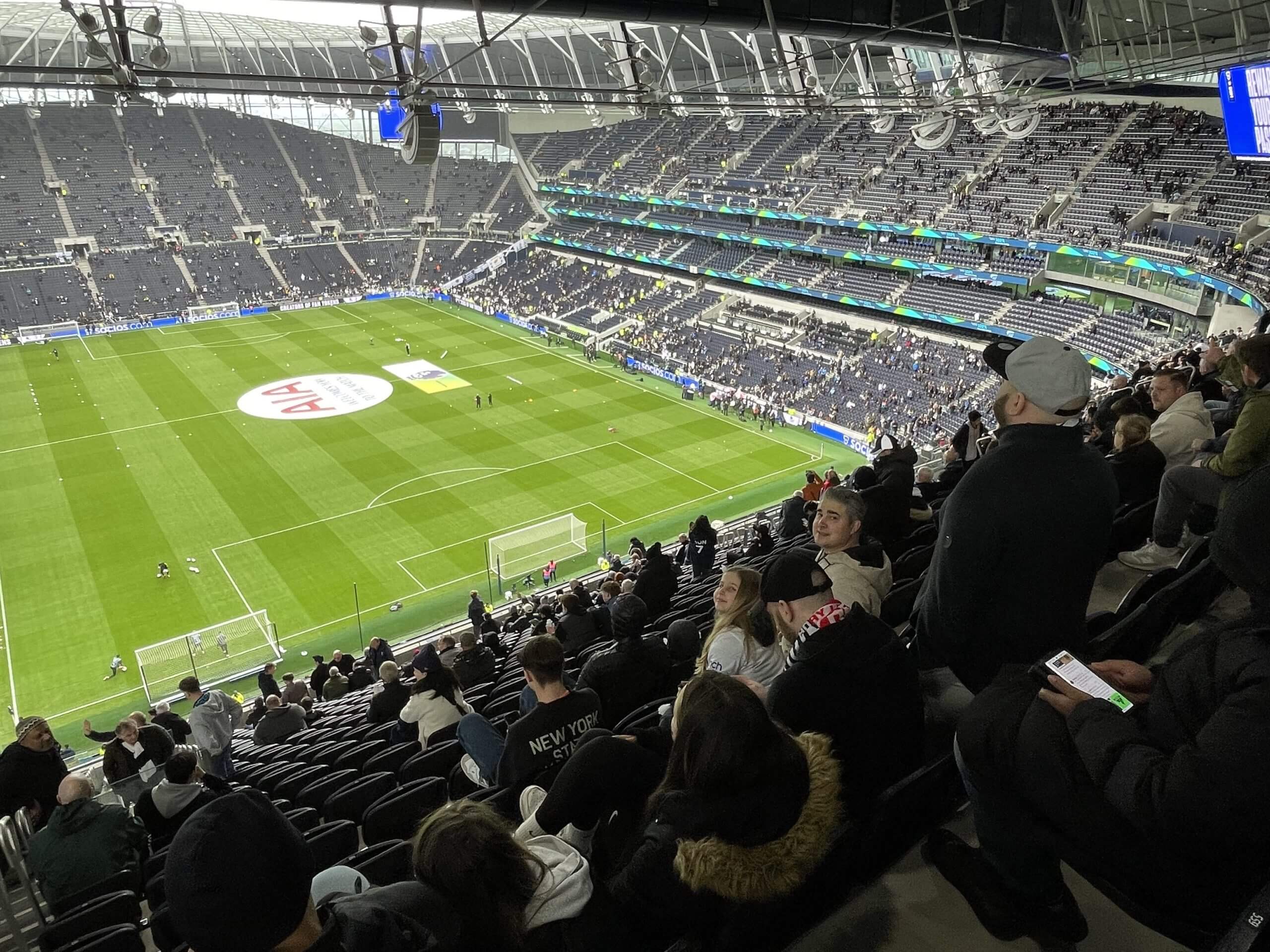
Erli Berg Daneshmand takes his seat in the North Stand (Erli Berg Daneshmand)
He tries to watch Spurs away in Europe too. This season, he got tickets for Ferencvaros and Galatasaray away, but could not for Rangers or AZ. At least the semi-final second leg is not one that he has to worry about. “My family basically ‘owns’ Bodo/Glimt,” he smiles. “So I’ll get a ticket.”
And now, quite remarkably, Berg Daneshmand’s yellow team could knock his white team out of Europe. No one would have imagined this 10 years ago, never mind before that. And he puts his local team’s rise down to a clear-eyed strategic vision that has been strikingly absent at Tottenham in recent years.
“Spurs, when they fire a manager, they think about who to hire,” he says. “But Glimt think about what they hire. Because Glimt have played the same 4-3-3 system since 1993. Every manager comes in and knows the way we’re going to play. Spurs take turns or detours: Ange Postecoglou, Nuno Espirito Santo, Antonio Conte, (Jose) Mourinho. With Bodo/Glimt, you know what you get.”
While Berg Daneshmand is not looking forward to the emotional confusion of Thursday, Geir Olsen has already made up his mind. He grew up in Bodo and lives just 200 metres away from Bodo/Glimt’s Aspmyra Stadion, where he is a regular. But he also makes time to go to Tottenham, who he has also supported since the late 1980s.
Advertisement
It is a longer journey from Bodo to Tottenham than from Oslo, meaning that Olsen has to take two flights each way to attend any game. This season, he has been to eight matches.
But when Olsen was at the Tottenham Hotspur Stadium for the 2-1 defeat against Nottingham Forest last week, he knew that he would have to support Spurs, rather than his local team, in May’s semi-final.
“It’s going to be emotional,” he says. “In the early stages of the Europa League, I was sure I would support Tottenham whoever they met. But then, when they drew Bodo, I was unsure. But I was at White Hart Lane against Forest, and I could not think or hope that Tottenham would lose the game. That was my final decision.”
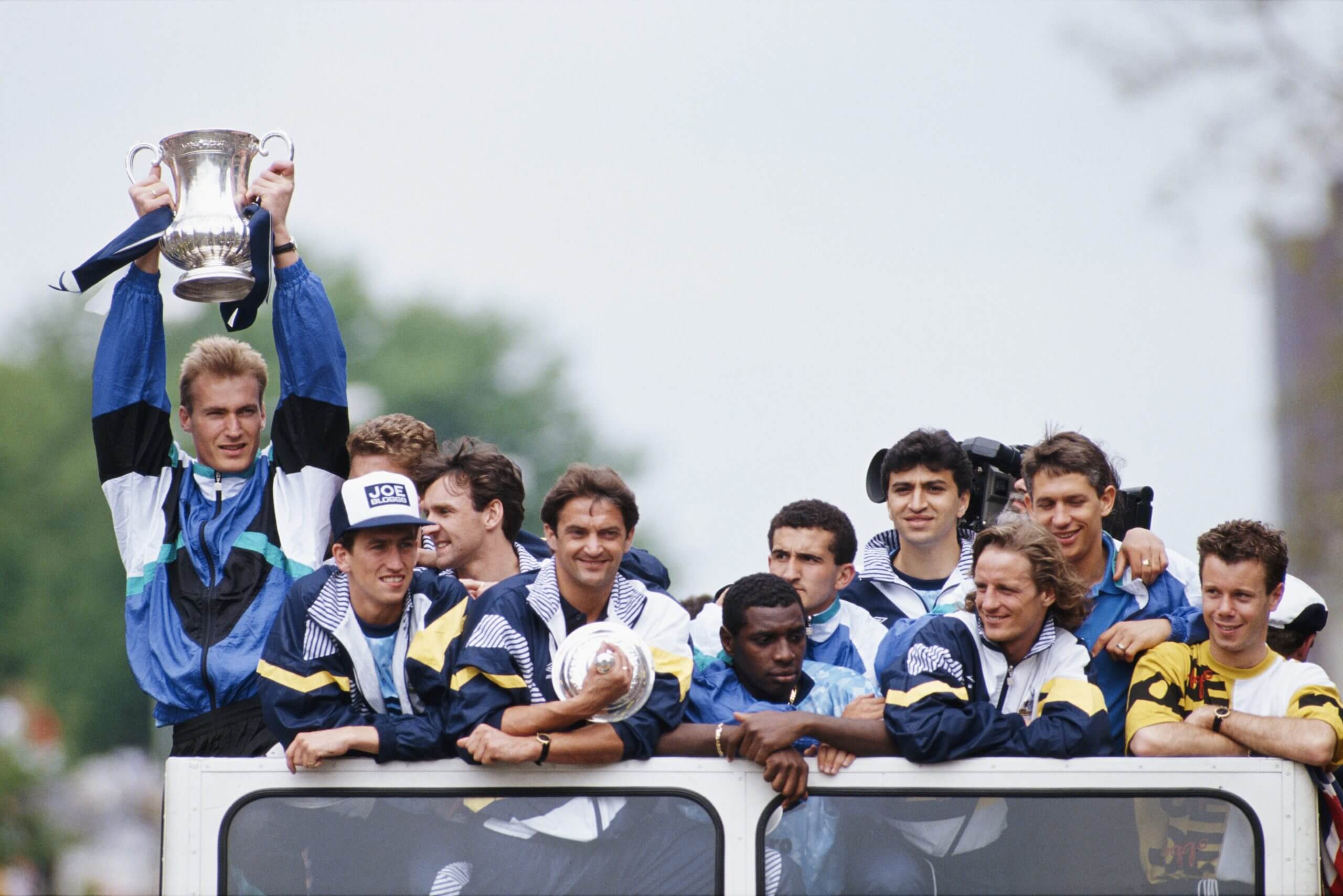
Thorstvedt holds the FA Cup after Tottenham beat Nottingham Forest in 1991 (Ben Radford/Allsport/Getty Images)
Olsen is certain, but Terje Flateby does not know yet who he will end up supporting.
He is another lifelong Bodo/Glimt fan. He was born in Bodo and has his own family connection to the 1975 Norwegian Cup-winning side, via his mother’s cousin, Einar Kolstad. He started attending games in the early 1980s. He cried when they missed out on promotion from the third tier to the second in 1985. He remembers the cup win in 1993. He used to write the club’s matchday programme.
And he too became a Spurs fan in the late 1980s. “I think it was the white shirt, and Glenn Hoddle was my favourite player,” he says. “The two in combination made my life as a Spurs supporter.” He remembers David Pleat’s famous 1986-87 Spurs side — Hoddle and Waddle — who played great football, finished third in the league and lost the FA Cup final.
Flateby soon made himself an integral part of the Tottenham fan scene in Norway, setting up the Scandinavian supporters’ club with friends in 1987 (at the age of 12) and then becoming chairman from 1989 to 1999.
Writing the members’ magazine gained him access to Spurs players to interview, and he was a frequent visitor to the old Mill Hill training ground. Not just Thorstvedt and Oyvind Leonhardsen, but plenty of British players too. He regularly flew over for games, mentioning the 1992 Cup Winners’ Cup quarter-final loss to Feyenoord, the 1993 FA Cup semi-final defeat against Arsenal, and the 1999 League Cup final victory over Leicester City.
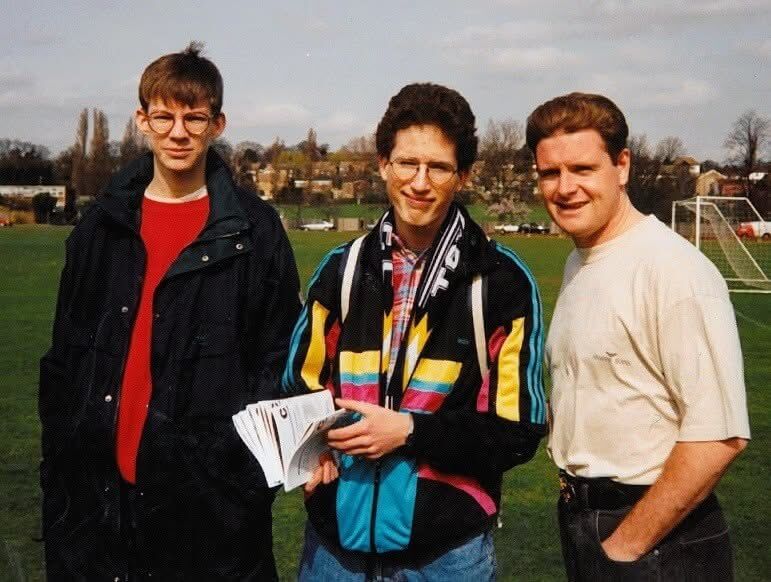
Flateby, left, visited Mill Hill regularly, meeting Paul Gascoigne and other players (Terje Flateby)
It is a reminder that while Spurs’ global popularity has taken off in the last decade, it has not just started. There have been loyal communities of match-going Spurs fans from outside the UK and Ireland for a long time now. Plenty of Norwegian fans have been supporting Spurs for 40 years.
That is enough time for Flateby to pass his support of both of his teams onto his son. “I don’t know if that’s a gift,” he says, “or what it is.” But they will watch Thursday’s game together at home in Haugesund, on the west coast of Norway. And only when it kicks off will Flateby know who to support.
Advertisement
“Of course it’s a dream but also a kind of nightmare,” he explains. “My friends on both sides expect me to choose their team, and I will disappoint both. I really don’t know who to support. Most people expect me to hope for my home team, which, in a rational sense, would be the right thing to do. But I have invested so many hours and feelings for Tottenham as well, that I can’t say that is the way I’m going. I don’t think I really know before the match starts.”
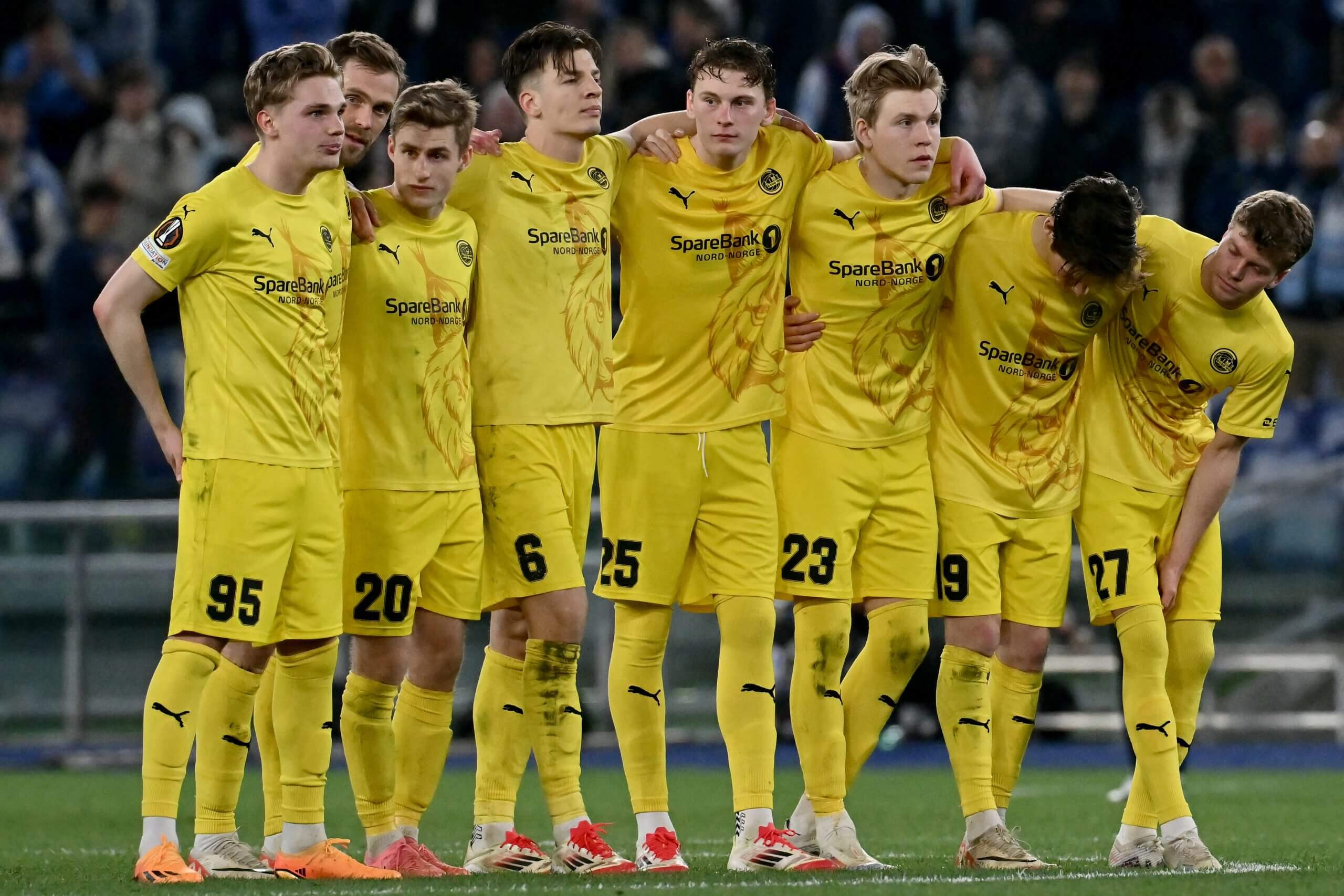
Bodo/Glimt beat Lazio on penalties in the Europa League quarter-finals (Filippo Monteforte/AFP via Getty Images)
Hanging over this game is the prospect of the final in Bilbao next month. Flateby has booked his flights (Stavanger to Amsterdam to Bilbao) and was smart enough to book an apartment back in August. Who comes to stay with him will depend on which of his two teams progresses. But he hopes to be happy either way.
Olsen has his flights booked (Bodo to Oslo to Barcelona to Bilbao) but knows that the pressure for a ticket will be far higher if Tottenham get there. “It would be much easier if Bodo got to the final because then I know I’ve got a ticket to the final,” he says. “But I will support Tottenham with all my heart.”
(Top photo: Runar Berg, Erli Berg Daneshmand and Harald Berg; by Erli Berg Daneshmand)
This news was originally published on this post .




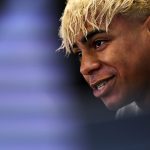


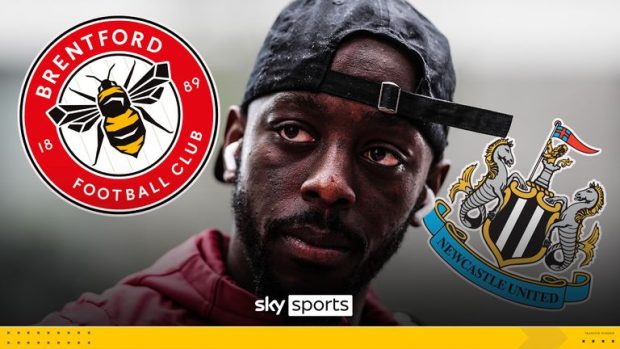
Be the first to leave a comment